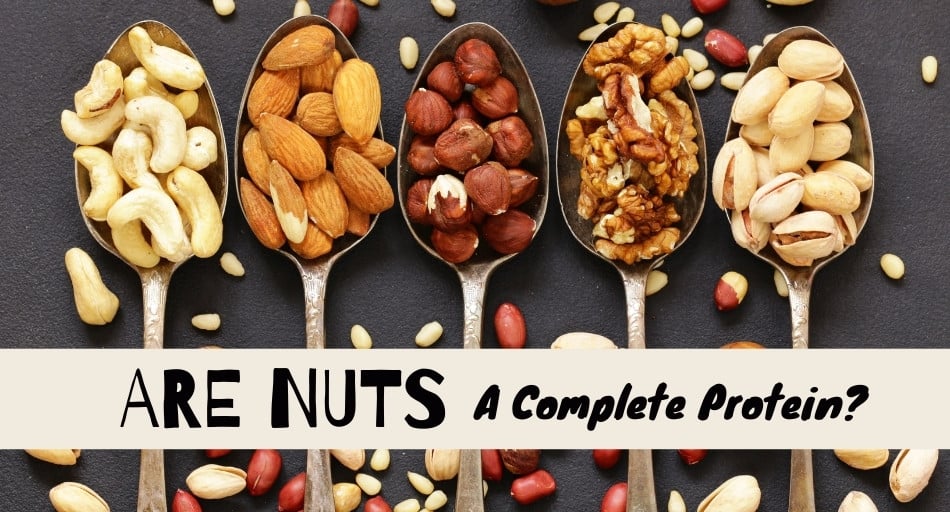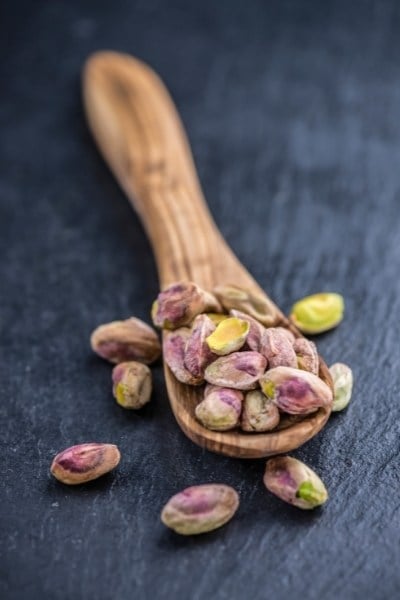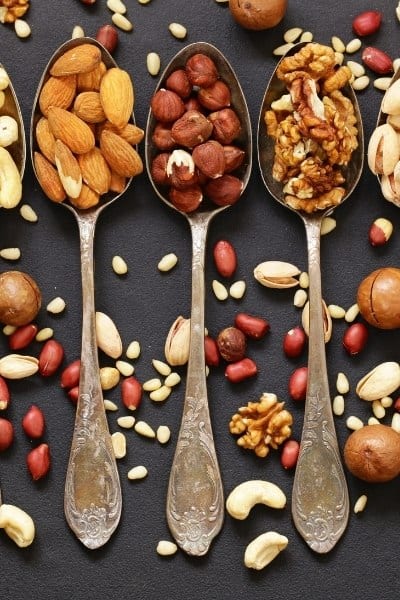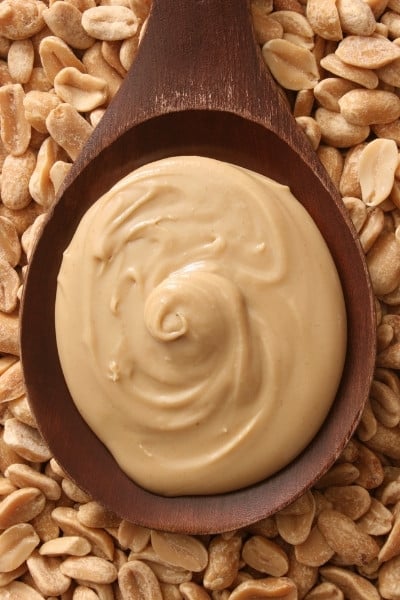Nuts are a very popular food, especially for those of us following plant-based diets. They can provide us with a great dose of healthy fats, minerals, and protein in a single serving.

Because of that, they’re very popular in all varieties.
As you may know, the best type of protein is a complete protein. Generally, most complete protein sources are animal-derived.
But there are some plant-based options. So, are nuts some of them?
Table of Contents
Are nuts a complete protein?
To be considered a complete protein, a food must contain all nine essential amino acids that your body doesn’t produce on its own. Since all nuts have different amounts of nutrients, such as protein, not all nuts are complete proteins.
Most types of nuts aren’t complete proteins, as they usually miss a few amino acids or contain them in small amounts.
On the bright side, roasted pistachios have recently been classified as a complete protein, according to some research.

Why are some nuts not a complete protein?
Most nuts lack at least one essential amino acid in adequate amounts to be considered a complete protein.
For example, almonds don’t contain enough lysine and methionine. Because of that, you have to consume almonds with a food containing these amino acids to create a complete protein.
The same goes for other types of nuts like walnuts, pine nuts, hazelnuts, and many others.
So, while they are a great source of protein, they don’t provide you with all the amino acids your body cannot produce.
Which types of nuts are complete proteins?
According to recent studies, pistachios can be considered a complete protein, as they contain all nine essential amino acids in adequate amounts.
They are still much lower in these amino acids than animal-derived products like meat or eggs, though.
Some experts also believe that cashews can be classified as a complete protein. Whether that’s the case, though, depends on the variety of cashews and where they come from.
Because of all that, it might be best to still consume pistachios and cashews with other high-protein foods. That way, you can ensure you are actually getting all the essential amino acids your body needs.
Are nuts good for you?

All types of nuts are very nutritionally balanced. They contain good amounts of carbs, protein, and healthy fats in one serving. For example, one ounce of pistachios provides you with 12% of your daily need for protein.
This macronutrient is important for fueling your muscles, and it can also boost exercise performance. What’s more, a diet high in protein can aid with weight loss.
Nuts also contain a lot of fiber in a single serving, which is also beneficial for weight loss. Fiber helps you stay full after eating, curbs your appetite, and increases satiety. In addition, it can help soak up excess stomach acid, reducing.
All types of nuts are also rich in thiamin, also known as vitamin B1. This micronutrient helps turn carbohydrates into energy. It also plays a crucial role in muscle contractions and the conduction of nerve signals. Because of that, thiamin is important for brain health and the nervous system.
In addition to all that, nuts are very rich in powerful antioxidants that help flush out free radicals from your body. This prevents oxidative damage and protects you against cancer, heart disease, and diabetes.
The same antioxidants may also reduce the levels of ‘bad’ cholesterol while improving the levels of the ‘good’ kind.
That can protect your cardiovascular system from various conditions, including heart attacks and strokes.

Some studies also found that eating nuts can be beneficial for people with metabolic syndrome.
Metabolic syndrome is a name for a group of risk factors that increase your risk of heart disease, stroke, and type 2 diabetes. Nuts eliminate these risk factors, improving your health and preventing these conditions from developing.
What’s more, people who follow healthy diets that include a wide variety of nuts are also getting a lot of anti-inflammatory properties from them. Research says that eating nuts can reduce inflammation in your body and even prevent early aging.
The best types of nuts for this health benefit seem to be pistachios, walnuts, almonds, and Brazil nuts, as they contain the most powerful anti-inflammatory compounds.
How can you make nuts a complete protein?
To make almonds a complete protein, try eating it with carrots, pumpkin seeds, avocado, spinach, sour cream, or yogurt.
These foods contain high amounts of amino acids that almonds are missing.
What’s more, eating almonds with pistachios can even help you create a complete protein, as these two types of nuts complement each other’s amino acid profiles.
Similarly, walnuts don’t contain the same two amino acids that are missing in almonds. So, pairing walnuts with the same foods you would pair almonds with can create a complete protein.
In fact, most nuts, aside from pistachios, are deficient in the same amino acids. So, you can use any of the foods mentioned above to create a complete protein profile for your meals.
Are nut butters a complete protein?

Just like nuts that they’re made with, nut butters aren’t a complete protein source. You would have to consume large quantities of any but butter to get enough of each of the nine essential amino acids.
Because of that, it’s important to pair nut butter, whether it’s almond or cashew butter, with a good source of the missing amino acids.
Some of the best choices include Ezekiel bread, spinach, and whole grains. It’s also important to remember that you can spread these foods throughout the whole day. So you don’t necessarily have to consume them together in one sitting.
Conclusion
Unfortunately, most types of nuts aren’t complete proteins. Because of that, it’s important to consume them with other high-protein foods that contain the missing amino acids in adequate amounts.
In spite of that, nuts are still a great source of protein as well as other minerals and vitamins. So, adding them to your diet in moderation is a great way to avoid micronutrient deficiencies and stay healthy.
Sources: Nutrition Data, Medical Encyclopedia, and National Library of Medicine
